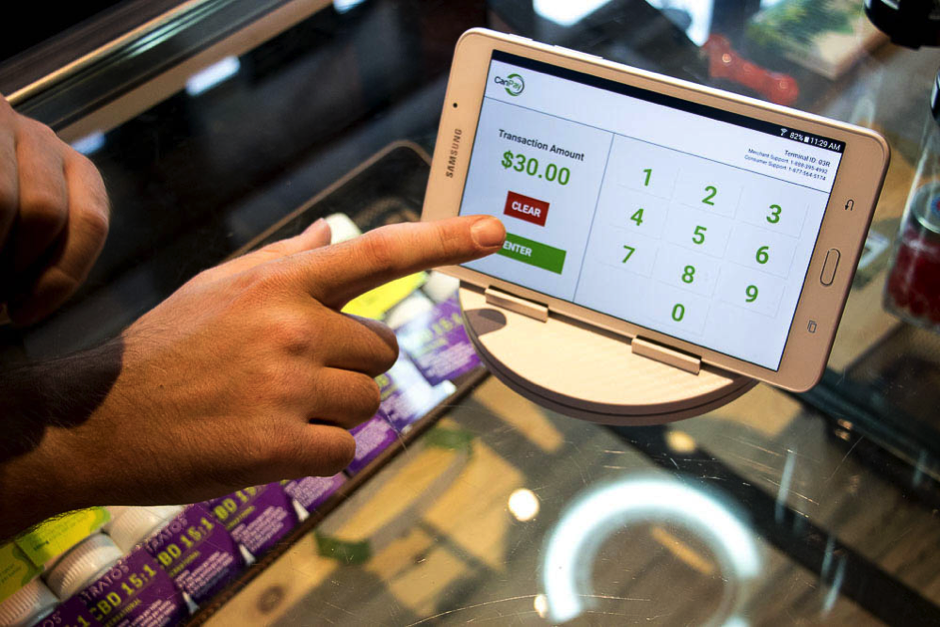One of the biggest of all grey clouds hanging over the cannabis industry in the United States is of course the bizarre stance adopted by the federal government. Realistically, it’s little wonder much of the public remains confused as to where they stand with cannabis policy. Step things up to a business level and things get all the more convoluted.
When you think about it, it’s nothing short of nonsensical. Right now, medical cannabis is legal in most North American states. That’s more than half of the entire country permitting, using and researching medical cannabis. At the same time, a full nine states have given the green light to recreational cannabis. As of January next year, a full 20% of the entire adult population of the US will live in a place where it’s legal to use recreational cannabis. And grow their own.
Despite all of this, the federal government still classifies cannabis as a Schedule 1 substance. Which means that not only is it considered to be of no medicinal value and a genuine danger to the public, it’s also bunched into the same bracket as heroin. Yep…cannabis and heroin are one and the same as far as the fed is concerned, at least in terms of public value and importance.
As we said…bizarre.
Financial Folly
The trouble is though, while it’s one thing to have an odd and confusing cannabis policy in place, it’s something else entirely when it affects businesses doing their thing. Which is exactly what it’s doing, as while you can buy and use cannabis legally in so many states now, buying it with a credit or debit card has been borderline impossible. MasterCard, Visa and other major players have made it clear that until the federal government changes its stance on cannabis law, they won’t be going anywhere near the industry.
The same goes for most major banks and lenders too, for which the idea of delving into a technically illegal industry doesn’t sit well. All of which is a little on the counterproductive side, though it is if nothing else opening up a world of opportunities for new and emerging financial companies. Albeit, most likely a temporary opportunity.
One such company goes by the name of CanPay, which claims to have set up the very first debit payment system for cannabis buyers in Colorado, Oregon and Washington. As it stands, the overwhelming majority of dispensaries and cannabis stores in general only accept payments in cash. It’s become commonplace for almost all major dispensaries to provide ATMs on-site, though with the slight caveat that most of them also tend to charge about $5 for each withdrawal.
According to CanPay, there are plenty of dispensaries across the US that claim to be accepting credit and debit card payments, though insist that theirs is the first real solution to be introduced.
“Likely they are using some type of Visa or MasterCard solution, which is not endorsed by Visa or MasterCard,” said CanPay Chief Executive Officer Dustin Eide.
“Some dispensaries seem to have set up debit card transactions, but they either misled the banks as to the nature of the business or certain companies have discovered creative ways to obtain a merchant account for the dispensaries. Often the result is that once the bank discovers what is happening they close down the account.”
Of course it’s not just the likes of MasterCard and Visa that refuse to give the time of day to those selling or buying cannabis for any purpose whatsoever. Instead, the same can also be said for Google and Apple, who have outright refused to list or promote the CanPay app. As such, the company had no choice but to create its own website as an access point for the app, where users can find out more information about what’s on offer and download the app needed to make the payments. According to Eide, one further benefit of the new system is that CanPay is even more secure than a conventional debit or credit card.
A Guaranteed Winner
Given the fact that the vast majority of Americans have become used to carrying little to no cash, there’s every chance CanPay could prove to be a huge success across a number of states.
“It’s not an exaggeration to say that cannabis businesses face a huge array of challenges that other industries don’t even need to consider,” said Tim Cullen, Colorado Harvest Company owner.
“CanPay solves one of these pain points for us as a business.”
The app works as part of a closed-loop solution, in which CanPay partners and works with a number of other service providers and financial institutions within the cannabis industry. They are not in any way linked with any major banks or lenders, for which the industry as a whole remains entirely out of bounds for now.
“We’ve partnered with CanPay because we see similar values between our approaches to helping cannabis retailers,” commented Sundie Seefried, President of Safe Harbor Private Banking, a division of Partner Colorado Credit Union.
“We both hold transparency, security, and legitimacy as priorities in this emerging market. These business people aren’t criminals, but in some instances, they are still treated as such.”
Technically speaking, CanPay has the potential to grow into something of a nationwide phenomenon of enormous power and value. The reason being that while the company may have started small, opportunities for expansion over the coming months are set to be anything but. For example, if CanPay was to branch out into California alone following the introduction of legal recreational cannabis on January 1, their user-base could immediately spike by millions. Just as long as the Fed continues to classify cannabis as a Schedule 1 substance, they will have free rein with little to no competition whatsoever.
Inevitable Entry
Of course, Eide acknowledged the fact that it’s really only a matter of time until Visa, MasterCard and other major financial brands enter the industry. At the same time, he still thinks that CanPay will retain an important edge over the competition – certainly enough to keep the company viable.
“It’s probably a couple of years away,” he said.
“But I still bet we’ll be cheaper than them.”
It is largely predicted that California could prove to be the state that tips things over the edge, in terms of federal policy on cannabis. With such a huge chunk of the country now supporting and making full use of pot, it’s becoming borderline impossible for the Fed to continue ignoring positive progress.
But at the same time, it remains to be seen what the Trump administration has in store for cannabis policy. Which given his own flip-flopping on the issue and his questionable White House staffing choices really could go either way.
Have you used CanPay in your state? Let us know what you think in the comments below.













